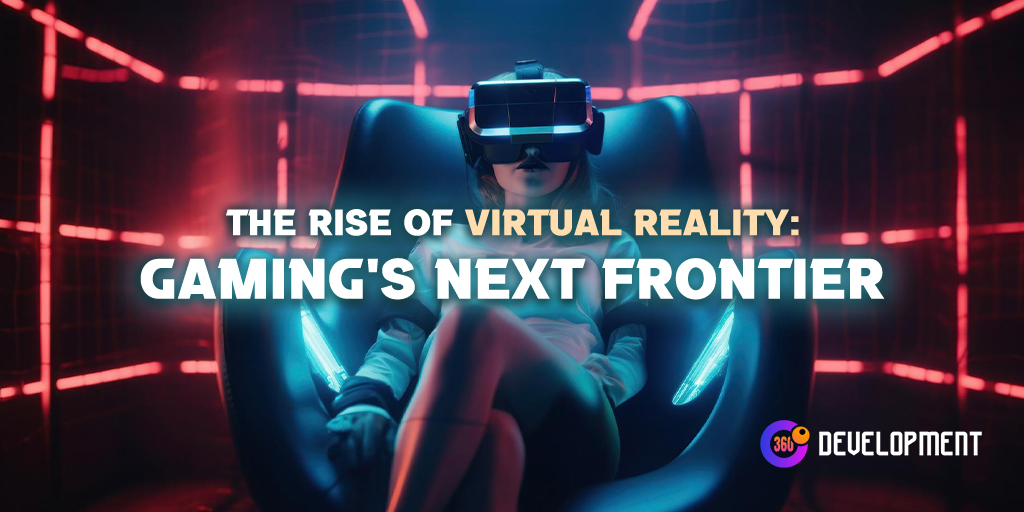The Rise of Virtual Reality: Gaming’s Next Frontier
Virtual Reality (VR) has emerged as the next frontier in gaming, revolutionizing the way we experience and interact with digital entertainment. With advancements in technology, VR has transitioned from being a niche concept to a mainstream phenomenon, captivating gamers and enthusiasts alike. In this article, we will explore the rise of virtual reality and its transformative impact on the gaming industry.
The Evolution of Virtual Reality
Virtual Reality is not a new concept. It has been a topic of fascination for decades, with early attempts made in the 1960s and 1970s. However, it is in recent years that VR technology has seen significant advancements, making it more accessible and immersive than ever before. The introduction of high-resolution displays, motion tracking sensors, and ergonomic controllers has propelled VR into the mainstream market.
Immersive Gaming Experiences
One of the key advantages of VR is its ability to transport players into immersive virtual worlds. Traditional gaming involves interacting with a screen, but VR takes it a step further by creating a sense of presence and embodiment within the game environment. With a VR headset on, players can physically turn their heads, move their bodies, and interact with virtual objects, creating a heightened level of immersion and realism.
Enhanced Interactivity and Gameplay Mechanics
VR opens up a new realm of possibilities for gameplay mechanics and interactivity. Instead of using a controller or keyboard, players can use their hands and body movements to interact with the virtual environment. This introduces a new level of physicality to gaming, enabling actions such as grabbing objects, throwing projectiles, and performing intricate gestures. The intuitive nature of VR controls adds depth and engagement to the gaming experience.
Diverse Gaming Genres in VR
Virtual Reality has expanded beyond traditional gaming genres and has given rise to new and unique experiences. While VR is synonymous with immersive first-person shooters and action games, it has also ventured into other genres such as puzzle games, adventure games, simulation games, and even virtual social platforms. The versatility of VR allows developers to explore innovative concepts and deliver captivating experiences across various genres.
Social Interaction and Multiplayer Experiences
VR is not limited to solitary gaming experiences. Multiplayer VR games and social platforms have gained popularity, enabling players to connect and interact with others in the virtual world. Whether it’s teaming up with friends to conquer virtual challenges or engaging in virtual social activities, VR provides a sense of presence and social connection that transcends traditional online gaming experiences.
Challenges and Opportunities
While VR gaming holds immense potential, there are still challenges to overcome. The cost of entry, including the price of VR hardware, can be a barrier for some players. Additionally, the need for sufficient space and the potential for motion sickness in some individuals are factors to consider. However, as technology advances and becomes more affordable, these challenges are gradually being addressed.
The rise of VR also presents opportunities for game developers and content creators. With a growing market for VR experiences, developers have the chance to explore new creative avenues, push the boundaries of immersive storytelling, and deliver unique gaming experiences that were previously unimaginable.
The Future of Virtual Reality Gaming
The future of VR gaming is promising. As technology continues to evolve, we can expect more realistic graphics, improved haptic feedback, and enhanced motion tracking capabilities. The growth of VR arcades and location-based experiences further indicates the expanding reach of VR beyond home gaming setups. With advancements in wireless VR technology, untethered experiences are becoming more prevalent, allowing players to move more freely and seamlessly within virtual worlds.
Conclusion
Virtual Reality has ushered in a new era of gaming, bringing immersive experiences and a heightened sense of presence to players worldwide. With its ability to transport players into virtual worlds, offer unique gameplay mechanics, and foster social interaction, VR has become gaming’s next frontier. As technology continues to advance and accessibility increases, we can anticipate an exciting future for VR gaming, where boundaries are pushed, and the possibilities are limitless.

